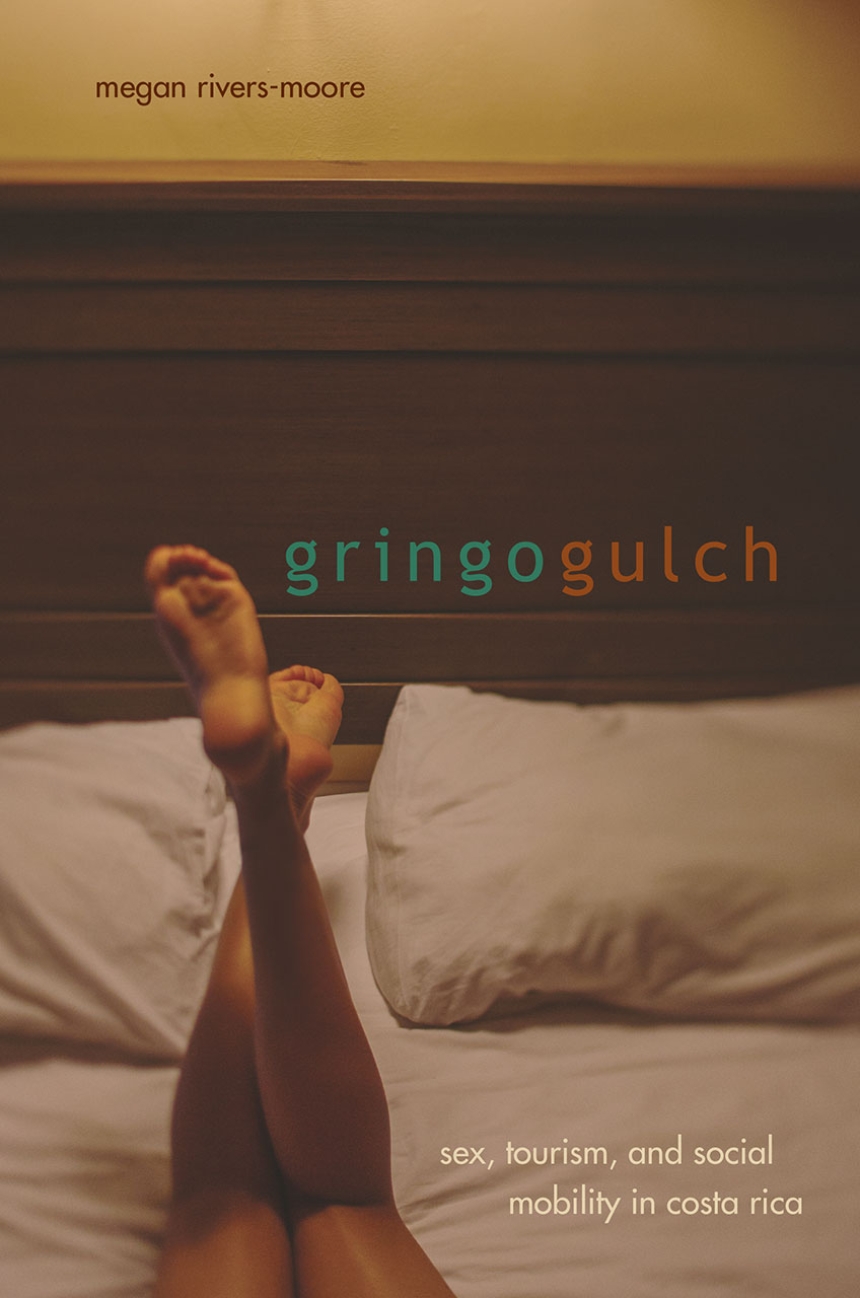Gringo Gulch
Sex, Tourism, and Social Mobility in Costa Rica
9780226373416
9780226373386
9780226373553
Gringo Gulch
Sex, Tourism, and Social Mobility in Costa Rica
The story of sex tourism in the Gringo Gulch neighborhood of San José, Costa Rica could be easily cast as the exploitation of poor local women by privileged North American men—men who are in a position to take advantage of the vast geopolitical inequalities that make Latin American women into suppliers of low-cost sexual labor. But in Gringo Gulch, Megan Rivers-Moore tells a more nuanced story, demonstrating that all the actors intimately entangled in the sex tourism industry—sex workers, sex tourists, and the state—use it as a strategy for getting ahead.
Rivers-Moore situates her ethnography at the intersections of gender, race, class, and national dimensions in the sex industry. Instead of casting sex workers as hapless victims and sex tourists as neoimperialist racists, she reveals each group as involved in a complicated process of class mobility that must be situated within the sale and purchase of leisure and sex. These interactions operate within an almost entirely unregulated but highly competitive market beyond the reach of the state—bringing a distinctly neoliberal cast to the market. Throughout the book, Rivers-Moore introduces us to remarkable characters—Susan, a mother of two who doesn’t regret her career of sex work; Barry, a teacher and father of two from Virginia who travels to Costa Rica to escape his loveless, sexless marriage; Nancy, a legal assistant in the Department of Labor who is shocked to find out that prostitution is legal and still unregulated. Gringo Gulch is a fascinating and groundbreaking look at sex tourism, Latin America, and the neoliberal state.
Rivers-Moore situates her ethnography at the intersections of gender, race, class, and national dimensions in the sex industry. Instead of casting sex workers as hapless victims and sex tourists as neoimperialist racists, she reveals each group as involved in a complicated process of class mobility that must be situated within the sale and purchase of leisure and sex. These interactions operate within an almost entirely unregulated but highly competitive market beyond the reach of the state—bringing a distinctly neoliberal cast to the market. Throughout the book, Rivers-Moore introduces us to remarkable characters—Susan, a mother of two who doesn’t regret her career of sex work; Barry, a teacher and father of two from Virginia who travels to Costa Rica to escape his loveless, sexless marriage; Nancy, a legal assistant in the Department of Labor who is shocked to find out that prostitution is legal and still unregulated. Gringo Gulch is a fascinating and groundbreaking look at sex tourism, Latin America, and the neoliberal state.
248 pages | 10 halftones, 1 line drawing, 1 table | 6 x 9 | © 2016
Geography: Cultural and Historical Geography
Sociology: Occupations, Professions, Work
Travel and Tourism: Tourism and History
Reviews
Table of Contents
Acknowledgments
Introduction
1. The Commerce of Sex in Costa Rica
Part I. Sex, Class, and Consumption
2. Almighty Gringos and the Relational Economy of Sex Tourism
3. Selling Sex, Selling Care: Affective Labor in the Tourism Sector
4. Motherhood, Consumption, and the Purchase of Respectability
Part II. Regulating Sex in the Age of Neoliberalism
5. The State and the Sex Industry
6. Good for the State, Bad for the Nation: Race, Space, and Migration
Conclusion: Getting Ahead in Gringo Gulch
Methodological Appendix
Notes
References
Index
Introduction
1. The Commerce of Sex in Costa Rica
Part I. Sex, Class, and Consumption
2. Almighty Gringos and the Relational Economy of Sex Tourism
3. Selling Sex, Selling Care: Affective Labor in the Tourism Sector
4. Motherhood, Consumption, and the Purchase of Respectability
Part II. Regulating Sex in the Age of Neoliberalism
5. The State and the Sex Industry
6. Good for the State, Bad for the Nation: Race, Space, and Migration
Conclusion: Getting Ahead in Gringo Gulch
Methodological Appendix
Notes
References
Index
